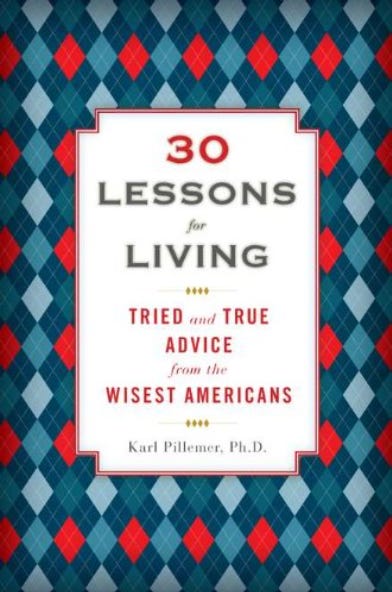Help! My friends' weddings are costing me a lot of money
How to celebrate your friends’ happily-ever-afters without going broke

If you’re in your 20s and you’re starting to feel like being a wedding guest or attendant has become a part-time job–and you’re the one who has to make payroll–you’re not alone. With the median average age to get married at 30.2 years for men and 28.4 years for women, sooner or later you’re bound to be deluged with wedding invites.
How can you celebrate these happy events without being overwhelmed by the expenses that come along with them?
Make peace with the fact that during this season of your life, a lot of your “entertainment” budget is going to be earmarked for expenses related to friends’ weddings
Most people have a year or two like this; the weddings multiply if you’re a couple. Once upon a time, my husband and I had a year like that. In May, my husband was in his friend Steve’s wedding. In August, I was in my friend Marylynn’s wedding. In September, my friend Rachel got married. In October, my husband’s friend Mike got married. It was rare that year to have a weekend that didn’t involve a shower, a bachelor or bachelorette party, or a wedding.
Looking back, most of our friends’ weddings occurred within five years. So if you feel caught in a tsunami of weddings, maybe you’re in the midst of your peak wedding season.
Remember two things: (1) This won’t last forever. Before you know it, your calendar will start to thin out, and you’ll wonder how you became a boring older person with a less exciting social life; and (2) Since weddings are once-in-a-lifetime occasions, you might as well enjoy them to the full extent possible.
Ideally everyone, including you, will get their turn to be the bride or groom. Celebrating your friends’ life events will involve some level of spending on your part, but there are worse things to spend money on.
Accept that being in someone’s wedding involves some level of financial commitment
Being part of a bridal party is an honor that comes with a cost. When you accept this invitation, you agree to assume the cost of outfitting yourself in special attire for the occasion, as well as for pitching in to help cover the expenses of festivities like showers and bachelor/bachelorette parties.
If you are lucky, your friends do not have champagne tastes and will be mindful about not wanting to excessively burden you with expenses.
You probably already know where your friends fall on the cost-sensitivity scale. If a friend’s spending habits suggest that their choices may be too rich for your blood, you may want to gracefully decline their invitation to be in the wedding party.
But if you do sign on, you must make peace with the fact that you’ll need to earmark part of your budget for wedding-related expenses. Maybe you’ll have to defer some other spending you had in mind for that year. But just like anything else, adjusting budgetary line items when necessary is part of being a grown-up.
Being in a friend’s wedding is one of those e-ticket ride experiences that don’t come along often. It will cost you, but that spending can be worth it if your relationship with them is meaningful enough to you that you want to be part of their closest circle of support as they wed.
If you’re not feeling that way about it, perhaps that’s a signal you should carefully consider whether you want to accept that “Will you be my bridesmaid/groomsman” invitation.

Select a wedding gift according to your means
According to The Knot, the average cash gift for a wedding is $160, though the amount varies according to how close a guest is to the couple. If you want help calculating an appropriate amount, try The Knot’s Wedding Gift Amount Calculator or CreditDonkey’s Cash Wedding Gift Calculator.
Remember that these are only guidelines. Though everyone likes to be able to give a generous gift to the happy couple, no one should ever feel pressured to give a gift that they cannot afford.
Most reasonable people understand that young adults just starting out only have so much disposable income to sink into a wedding gift. Presumably your friends get this because they are in the same boat as you. If you are feeling pressure to measure up to expectations, it’s worth considering whether it’s your ego powering the voice in your head nagging you about spending enough on a gift.
Remember that although money is a common wedding gift, it’s not the only option. If the amount you can spend on a gift isn’t as large as you would like, you may feel better giving a gift with some meaning attached instead of money.
Draw on your intimate knowledge of the happy couple and their history for a gift that only someone who knows them well would think of. Or choose a personalized item that celebrates the new family they’re forming. Or select something that can become a sentimental favorite–like a set of ornaments meant to bring happiness and good luck when hung on the Christmas tree during the first year of marriage according to an old German tradition.
And don’t forget that if the couple has created a gift registry, it typically includes items at various price points so you can get them something you know they want that fits your budget.
In the end, it really is the thought that counts. If you come up with a gift that you feel good about giving because it has meaning, the monetary value of the gift becomes less central.

Trim the expenses you can
It’s a fact of modern life that we don’t always live in the same metro as our friends. So a wedding often involves travel expenses.
Though a tighter budget may require careful planning, you can find ways to get to the wedding without breaking the bank. Economize where you can. Book the first or the last flight of the day, which is usually cheaper. See if you can split a hotel room or an Airbnb with a friend.
Maybe wedding-related travel will replace your vacation travel for a while. Consider whether you can add a day or two to your stay and turn it into a vacation.
Weigh whether you have to be there for all of the festivities. If the bachelor/bachelorette weekend is at an exotic location that exceeds your budget, you could decline and take your friend out for a special celebratory dinner instead. Or if there are multiple showers, you may not need to attend all of them.
While sometimes it’s nice to have a good excuse to buy a new dress or suit, remember that you don’t always have to purchase new attire for a wedding if you aren’t in it. If Kate Middleton recycles her outfits, you can too.
Give and participate in festivities according to your means
Being someone’s friend or relative does not come with the obligation to break the bank or go into debt to celebrate their nuptials. Whether it’s the wedding gift or wedding-related events, you should give or participate in a way that fits your budget.
If you can’t afford to participate in the bachelor/bachelorette festivities, you should not feel obligated to go. If the budget for the festivities has somehow gone over the top, then it’s better for everyone if you gracefully decline instead of going along begrudgingly.
*******
When I went looking through my archives for images to illustrate this story, I noticed that the vast majority of photos in the album from my “peak wedding years” were from friends’ weddings and showers (unfortunately the photo quality from back then isn’t as great as the memories are). I think it speaks to both the prevalence of weddings during your 20s and likewise the significance of weddings in your memory bank.
Yes, you may spend a lot of money celebrating weddings during these years, but it’s in service of significant life events. Though it may require some thought, planning, and boundary-setting, it’s possible to find a way to celebrate the happy couple without creating financial angst for yourself.

Sociologist Karl Pillemer wondered, “Could we look at the oldest Americans as experts on how to live our lives? And could we tap that wisdom to help us make the most of our lifetimes?” He asked over a thousand older Americans to reflect on the right moves and the mistakes they made. His book 30 Lessons for Living provides concrete, practical advice about how to make the most of your life on everything from marriage to careers to money.
In the olden days, moms used to clip newspaper articles for their kids if they thought it was something they needed to know. I’m watching for things you might have missed that may be helpful to you.
This week’s clips:
Four experts covered the do’s and don’ts of being a plus one for Life Kit. Listen or read the comic strip.
Grown and Flown runs down six important things young adults should know about being a wedding guest.
The Washington Post explains why it’s okay to RSVP “no” to a wedding invite if you’re broke.








